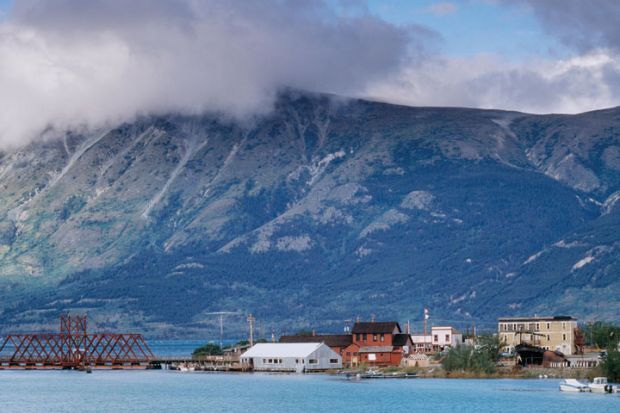For the past 150 years, academic research in Yukon, the smallest of Canada’s three territories, has centred on “southerners coming up to solve northern problems”, said Tosh Southwick, associate vice-president of Indigenous engagement and reconciliation at Yukon College.
But there are big hopes that this will change now that the college has become the first institution in Arctic Canada to be granted university status – a development that has been sought by Yukon First Nations for the past 50 years.
“Having a university in the north means that we can solve northern problems by northerners in the north. We become the experts on our own area,” Ms Southwick said, pointing out that Canada was the last of the eight circumpolar countries to establish a university in the Arctic.
“It’s exciting not just for Yukon but for Canada,” she added. “It’s about time we had a university in the north.”
As well as being the smallest region in Canada, with a population of just 36,000, Yukon is also the westernmost territory in the country, flanked by the Northwest Territories and Alaska.
Yukon College, which has about 6,000 students, 28 per cent of whom are Indigenous, began as a vocational and technical training centre in the 1960s and still offers trade programmes as well as academic upgrading, certificates, diplomas and degrees granted by partner institutions.
When it officially launches as Yukon University in May, it will finally be able to grant its own degrees, alongside its existing college programmes. It has already opened two new bachelor’s programmes, in Indigenous governance and in business administration with a northern focus, the former also available through distance learning.
The institution hopes these changes will lead to an increase in the number of northern students enrolling in higher education.
“Our northern students who have wanted to pursue a university education have had to leave the north and go south to do that. When you come from a small community and you need to leave your family and those you know to go to a large city down south, it can be quite a difficult transition,” said Bronwyn Hancock, associate vice-president of research development at Yukon College.
“Many students decide that that is something they don’t want to pursue because that change in life and situation is so significant.”
The legislation conferring university status includes provisions to ensure that the university “includes, respects and honours Yukon First Nations knowledge, worldviews and educational priorities” in its programming and operations, and that it reports annually to each of the 14 Yukon First Nations.
“That is not something I’ve ever seen in any university legislation across Canada or internationally,” Ms Southwick said.
On the research side, Dr Hancock said Yukon College’s transition to university status strengthened its ability to “direct the northern research agenda” and to involve students in research. Research at the institution currently includes work on climate change adaptation, mine remediation and energy innovation.
“That could change a lot about the way that Arctic research is done in Canada,” she said.
“We’re really trying to explore with our Yukon First Nations partners what it means to do research in a way that reflects both Indigenous and Western science practice. How do we weave those together? How do we learn both approaches to create research results that are really relevant?”
Karen Barnes, president and vice-chancellor of Yukon, said that Arctic universities in other countries have traditionally partnered with universities in southern Canada that have expertise in Arctic research, but Yukon College is now being included in these collaborations.
“We have been invited to a number of partnerships, both circumpolar and nationally, on issues such as climate change or permafrost,” she said, adding that last summer Yukon hosted 67 post-secondary presidents and vice-presidents on its campus “because they wanted to see what we were doing in Indigenous engagement and education”.
Meanwhile, in last year’s budget, Canada’s federal government announced that it would provide C$26 million (£15 million) for Yukon College to construct a new science building – a development that Dr Barnes said was significant given that school pupils in many rural areas in the north do not have access to high-quality science education.
“We want to make sure that they see science, that it comes alive, and that they’re able at a young age to come on to campus and get excited about it so that they might pursue a career related to science,” she said.
Elaine Alexie, Northern community engagement officer at the University of Alberta, said Yukon’s development was “very significant and timely” and would enable “more research opportunities with Indigenous communities”.
“This can serve as an example for responsible, ethical and respectful community-engaged research in the north,” she said.
POSTSCRIPT:
Print headline: Northerners look to institution to empower region
Register to continue
Why register?
- Registration is free and only takes a moment
- Once registered, you can read 3 articles a month
- Sign up for our newsletter
Subscribe
Or subscribe for unlimited access to:
- Unlimited access to news, views, insights & reviews
- Digital editions
- Digital access to THE’s university and college rankings analysis
Already registered or a current subscriber? Login








